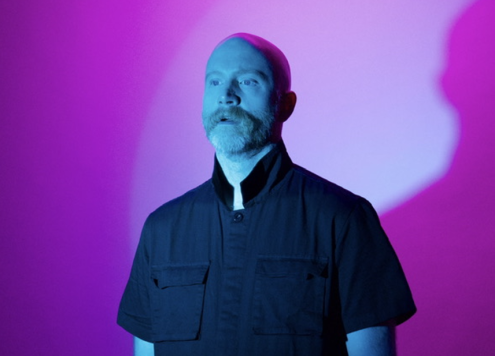Acclaimed Montreal-based Japanese psych-rock band TEKE::TEKE have released “Gotoku Lemon,” the second single from their upcoming sophomore album, Hagata, out June 9 via Kill Rock Stars. An eclectic song mixing the musical aesthetic of Chindon’ya’(Japanese marching bands) with Bollywood style grooves and baroque 70s film score orchestration, the song builds from an ominous trance to an energetic climax. Riding a low-slung shuffling beat, clustered guitar and horns, and always capable of shifting from a beguiling whisper to a histrionic wail at a moment’s notice (while hitting every emotional and tonal register in between), Maya Kuroki’s masterful vocals are on full display, bending into a growly syllable here or a breathy exhalation there. And while flutist Yuki Isami and trombonist Etienne Lebel daubed unique colors onto Shirushi, Gotoku Lemon amplifies that impressive skill with inventive arrangements, darting between tight harmonies and solo lines. The result is something of a drunken bluesy calypso, with a lingering intensity just below the surface.
Translating to “Lemon Enlightenment” in English, the track sees lead vocalist Kuroki spinning a whimsical short story about a world in which glow-in-the-dark lemons are found to be the cure for all ills – but beware: like all good short stories, this one comes with a twist. In the end, the song serves as a warning to those who seek salvation in snake oil. Accompanied by an animated music video directed by Kuroki and the band’s guitarist Sei Nakauchi Pelletier, this is sure to be the greatest avant-garde psych-noise fairy tale about lemons you will hear all year.
As for the album, “‘Hagata’ is a very deep word, something present but also something leftover from someone or something no longer there,” Kuroki explains. “It’s like waking up from a dream, or being connected to the other side of something.” TEKE::TEKE are intimately familiar with that duality, of splitting reality between past and present, complex melodies and hushed interludes, intense action and lingering response. After building their sound on Shirushi through careful assembly of countless splinters of Japanese folk, psychedelia, Brazilian surf rock, and other far-flung touchstones, the seven-piece indulged in and learned from stretching out in free-floating experimentation both on the road and with Hagata’s producer Daniel Schlett (The War On Drugs, DIIV, CHAI, Nick Hakim), recorded in a scenic studio in Mountain Dale, New York, the album having been mastered at Sterling Sound.











Social Media